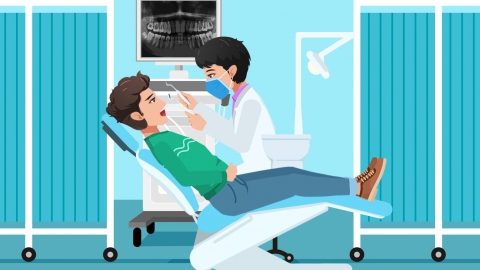What Are the Five Major Risks of Dental Implants?
Generally speaking, there is no established concept of "five major risks of dental implants." Although dental implants are a common restorative method, potential risks may include infection at the implant site, gum recession, nerve damage, implant loosening or detachment, and damage to adjacent teeth. A detailed analysis is as follows:

1. Infection at the implant site: Inadequate sterilization during surgery or poor oral hygiene after surgery may lead to infection at the implant site, manifesting as local redness, swelling, pain, pus discharge, and other symptoms. Infection not only affects the implant outcome but may also cause inflammation of surrounding tissues and prolong recovery time.
2. Gum recession: Poor adaptation of the implant to the gum tissue or chronic local irritation after surgery may lead to gradual gum recession, exposing the root of the implant. This affects dental aesthetics and increases the risk of infection around the implant.
3. Nerve damage: Improper surgical techniques may injure the inferior alveolar nerve or maxillary sinus nerve, causing numbness, tingling, or pain in the lower lip, chin, or gums. Minor injuries may recover gradually, but severe damage can result in long-term sensory abnormalities.
4. Implant loosening or detachment: Poor integration between the implant and the alveolar bone or chewing excessively hard food too soon after surgery may cause implant loosening, and in severe cases, detachment. This situation requires reassessment of the alveolar bone condition and possibly a second surgical procedure.
5. Damage to adjacent teeth: Inaccurate positioning during surgery or excessive grinding of adjacent tooth structures to accommodate the implant may damage the structure of neighboring teeth, leading to sensitivity, pain, or even caries or pulpitis in adjacent teeth.
When undergoing dental implant treatment, it is important to choose a reputable hospital and an experienced dentist. After surgery, strictly follow medical advice to maintain oral hygiene, avoid chewing hard foods, and schedule regular follow-up visits. Maintaining good oral hygiene habits is essential to ensure the success of the implant and overall oral health.





